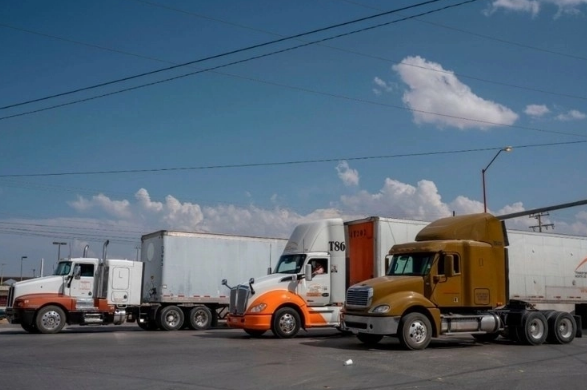ROMA – Of the more than 120 million people displaced around the world, three-quarters live in countries heavily affected by climate change. Half are located in places affected by both conflict and severe climate risks, such as Ethiopia, Haiti, Myanmar, Somalia, Sudan and Syria. According to the report, “There is no escape” – No Escape: On the Frontlines of Climate Change, Conflict and Forced Displacement – by 2040 the number of countries facing extreme climate-related risks will rise from 3 to 65, most of which will host refugees and internally displaced people. Likewise, by 2050, most settlements and refugee camps are expected to experience double the number of days of extreme heat.
The changing climate is a harsh reality. “Climate change is a harsh reality that profoundly impacts the lives of the most vulnerable people in the world,” said Filippo Grandi, United Nations High Commissioner for Refugees.(UNHCR). “The climate crisis is causing displacement in regions that already host large numbers of people uprooted by conflict and insecurity, worsening their situation and leaving them without a safe place to go.”
The example of Sudan. For example, the devastating conflict in Sudan has forced millions of people to flee, including 700,000 who have crossed into Chad, a country that has hosted refugees for decades and also one of the countries most exposed to climate change. At the same time, many of those who fled the fighting but remained inside Sudan are at risk of being forced to flee again due to severe flooding in the country. Similarly, 72% of Myanmar refugees have sought safety in Bangladesh, where natural hazards, such as cyclones and floods, are classified as extreme.
People who have been displaced for years now. “In our region, where so many people have been displaced for many years, we see the effects of climate change before our eyes,” said Grace Dorong, a climate activist and former refugee living in South Sudan. “I hope the people’s voices in this report help decision makers understand that if the problem is not addressed, the number of people displaced – and the multiplier effect of climate change – will worsen. But if they listen to us, we too can be part of the solution.”
Insufficient climate finance. The report also highlights that climate finance is failing to reach refugees, host communities and other people in fragile and conflict-affected countries, so their ability to adapt to the effects of climate change is rapidly deteriorating.
Two dollars per person to the most fragile states. Currently, extremely fragile states receive only about US$2 per person in annual funding for adaptation plans, a startling shortfall compared to US$161 per person in non-fragile states. When investments reach fragile states, more than 90% goes to capitals, while other places rarely benefit.
The results of the UNHCR report at Cop29 in Baku. The findings were published during COP29 in Baku, Azerbaijan, where UNHCR is calling for climate finance to reach those most in need at higher rates. The refugee agency also urges states to protect fleeing people, who face the added threat of climate disasters, and to give them and their host communities a say in financial and political decisions.
The climate emergency is above all a great injustice. “The climate emergency represents a profound injustice,” Grandi declared. “Forced people, and the communities that host them, are the least responsible for carbon emissions, yet they are paying the highest price. Billions of dollars in climate finance never reach them, and humanitarian assistance fails to adequately cover the widening gap. Solutions are within reach, but urgent action is needed. Without adequate resources and support, those affected will remain trapped.”
#Cop #million #people #run #quarters #live #countries #affected #drought #floods
–

